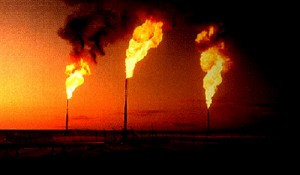 The EPA recently announced new regulations for methane emissions, taking an important first step in reducing the impact of this highly potent greenhouse gas (GHG). But the rule falls short, in part because EPA has systematically underestimated methane emissions from the oil and gas industry. Emissions from conventional natural gas are likely to be at least 2- to 3-fold greater than the EPA estimates, according to several recent studies. Recent literature also suggests emissions from shale gas may be twice as much greater still, based on an observed large increase in methane in the atmosphere over recent years, with the boom in shale gas and shale oil production in the U.S.
The EPA recently announced new regulations for methane emissions, taking an important first step in reducing the impact of this highly potent greenhouse gas (GHG). But the rule falls short, in part because EPA has systematically underestimated methane emissions from the oil and gas industry. Emissions from conventional natural gas are likely to be at least 2- to 3-fold greater than the EPA estimates, according to several recent studies. Recent literature also suggests emissions from shale gas may be twice as much greater still, based on an observed large increase in methane in the atmosphere over recent years, with the boom in shale gas and shale oil production in the U.S.
Further, the proposed regulations neglect the existing natural gas infrastructure, which by one estimate will account for nearly 90% of methane emissions by 2018. While EPA may revisit regulating existing sources after giving industry time to achieve reductions through voluntary programs, the chances of meeting the Obama Administration goal of a 40-45% reduction in methane emissions by 2025 are low without addressing existing sources of methane.
Methane is a much more potent GHG than carbon. However, because methane stays in the atmosphere for only 12 years, its long-term influence is somewhat diminished — unless, of course, it results in a fundamental change in the climate. If current trends continue, over the next 15-35 years the Earth could reach dangerously high temperatures that represent a growing risk of a tipping point where the release of enormous stores of methane from polar ice may lead to runaway global warming. As a result, immediately decreasing methane emissions is critical.
Reducing all sources of emissions should be a priority for the Obama Administration, but, in an ongoing effort to label natural gas as a bridge fuel, they are missing the importance of properly regulating methane emissions. The global warming potency of methane must be considered in dealing with increased natural gas production, and it should be regulated accordingly.
When discussing the Obama Administration’s plan to address methane emissions from the oil and natural gas industry, it’s important to first understand what it is not. It is not a… Read more »
Dr. Howarth and Mr. Schroeder, Thank you for your posts. We would like to bring up the issue of public health benefits of a strong upstream oil and gas methane rule, which… Read more »
Greetings: In the context of any proposed or existing environmental policy it is important to consider both the benefits and costs. Typically, costs of policy implementation manifest within organized markets.… Read more »
When it comes to existing sources of methane leakage, can someone speak to the issue of the extent to which public buildings or heating systems are sources of leaks? What… Read more »
As Jane points out below, the main source of methane emissions in cities comes from aging gas distribution infrastructure. Some cities have 100 year old iron pipes with wax seals… Read more »
So glad to see the methane issue addressed with urgency for the climate. There is also urgency required because of our old decrepit infrastructure …. Here is a map of… Read more »
Based on publicly available data, the Environmental Protection Agency’s (EPA) proposed regulations on methane might be a solution in search of a problem. That’s largely evident in EPA’s latest draft… Read more »
The EPA bases its methane emissions estimates on data provided by fossil fuel companies. Scientific studies indicate that actual methane emissions from the entire extraction and transportation process may be… Read more »
[…] week, EID contributed to a discussion on OurEnergyPolicy.org responding specifically to a post by Dr. Robert […]
EPA’s cherry-picking of which GHGs to demonize and which emissions to regulate as pollutants has the unfortunate consequence of achieving the opposite of its stated intentions. For example, its MTBE… Read more »
At this point in the discussion, it may be useful to provide some additional information on the scope of the Administration’s methane strategy for oil and gas, and to focus… Read more »
New Energy Regulations a Big Political Payoff According to recent figures from the Energy Information Administration, the average two-car family will save more than $1,000 this year due to lower… Read more »
Ms. Hartnett-White’s assertion that methane emissions from the natural gas industry fell by 40.4% between 2006 and 2012 is simply not supported by quality science. In fact, the best evidence… Read more »